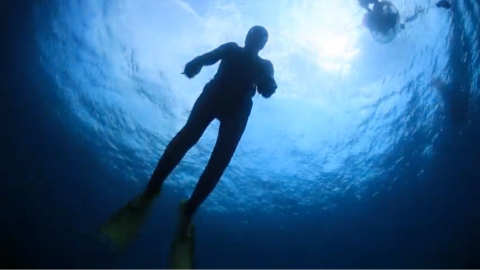it's the single biggest issue facing New
Jersey syros that's what the State
Department of Environmental Protection
says based on reported Commission
Rutgers scientists to conduct the study
predicts the sea to rise more than a
foot by 20 32 feet by twenty fifty six
feet by the end of the century if
nothing changes house of your sea level
rises depends upon what we has a global
civilization do about our agreement
greenhouse gas emissions how much
pollution how much emissions how much
carbon dioxide we put in the air we need
to be looking at it radical
transformation of our energy system and
our transportation system otherwise
coastal areas Atlantic City the Jersey
Shore will see more high tide or
so-called sunny day flooding flooding
not the result of a storm but from sea
rise the study found it used to happen
less than once a year in the 1950s now
ten times a year the study's prediction
up to 75 days a year by 2030 I think the
people on the shore recognize that tidal
flooding is happening more frequently
right that can cut people off from their
cars it can cut people off from you know
they can't get to where they're going
even though it's sometimes called
nuisance flooding it has a real economic
impact
professor Cobb says this research is not
meant to overwhelm any one person but it
does beg the question what can you do
about it he has some answers so we have
to make our communities more resilient
to that more frequent flooding so that
includes things looking at building
codes that include things like thinking
about buyouts in the aftermath of a
disaster and it includes sort of
long-term communal thinking about what
the long-term shape of our coastal
communities are we need to get on a path
towards net zero greenhouse gas
emissions that's the only way to
stabilize the global climate are we on
the path to any of the things that you
just described
you know emissions have growth has
slowed down but emissions are still
growing so you know we have to you know
that curve was going up really quickly
now it's going up less quickly but we
really have we have to get that curve of
Green global emissions going down to
zero in order to stabilize the kind of
climate as long as carbon dioxide is
going into the atmosphere the planets
going to keep warming DEP Commissioner
Katherine McCabe says New Jersey has
much to lose if we do not act
quickly and decisively to adapt to the
realities of climate change this study
illustrates the sobering reality that
our coastal landscape will change
drastically and we must act with urgency
to ensure the long-term viability of our
coastal and waterfront communities the
science is only as good as the practice
of its implementation Jeanne herb of the
Rutgers blaustein school helps
policymakers put the science into action
what we hear over and over and over
again from communities is that they want
to plan for changing climate conditions
but they're not sure how last spring we
did a survey a statewide survey here in
New Jersey and what we heard was that at
least two-thirds of New Jerseyans were
either very concerned or concerned about
climate change but less than a quarter
of New Jerseyans knew a lot about what
to do about climate change herb says
that apply to decision makers as well
but Rutgers is working to change the
climate Michael Hill NJTV news
[Music]



